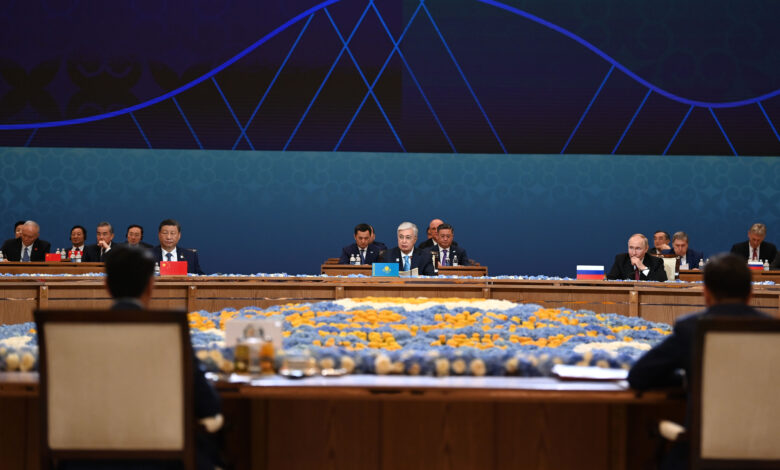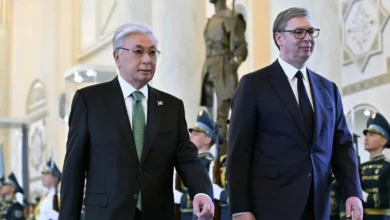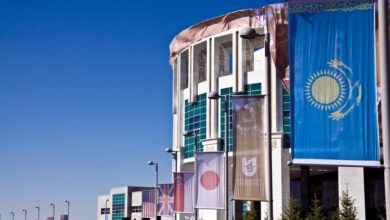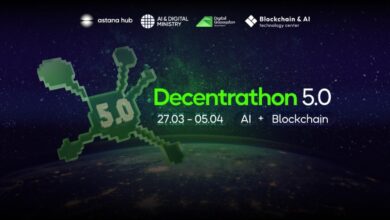President Tokayev Speaks at SCO Plus Summit
The meeting of the Council of Heads of State of the Shanghai Cooperation Organization (SCO) continued in the SCO Plus format. President of the Republic of Kazakhstan Kassym-Jomart Tokayev addressed the summit participants, emphasizing the unique role of the SCO in the international arena.

Tokayev highlighted the serious challenges the world faces due to geopolitical tensions and conflicts. He warned that the architecture of international security is under threat, which could have severe consequences for humanity. Tokayev stressed the responsibility of the SCO to strengthen peace, stability, and security through collective efforts at both regional and global levels. He believes that the SCO, with its significant economic and human resources, can develop effective solutions to achieve sustainable development goals and address modern challenges. The slogan of Kazakhstan’s chairmanship in the SCO, “Strengthening multilateral dialogue – striving for sustainable peace and development,” reflects this mission, he said.
Tokayev also emphasized the importance of promoting peaceful and harmonious development within the SCO. He expressed confidence that global stability can only be achieved through collective efforts and wise diplomacy. Tokayev highlighted the role of the United Nations (UN), which will celebrate its 80th anniversary next year, as the main international institution for ensuring global security. He called for strengthening the UN’s role and ensuring that the SCO’s voice is louder in promoting a unified stance on various global issues. Tokayev proposed adopting a General Assembly resolution in support of the initiative “On World Unity for Just Peace, Harmony and Development” by the 80th anniversary of the UN and the 20th anniversary of cooperation between the SCO and the UN.
The President also focused on strengthening trade and economic ties, noting that sanctions conflicts harm the global economy. He emphasized the need for a flexible strategy for trade and economic cooperation to maintain positive growth. Tokayev highlighted the high growth rates of the SCO member states’ economies and their significant contribution to global GDP and trade.
Tokayev pointed out that Asia’s economic growth is largely driven by the SCO states. He welcomed China’s intention to expand market access to the SCO countries and increase trade turnover. Tokayev stressed the importance of fully leveraging the SCO’s economic potential and the benefits of cooperation with other integration groups like the EAEU, BRICS, and ASEAN. He also emphasized the need to enhance transport connectivity, with the SCO region capable of becoming a major Eurasian belt for global trade development.
Kazakhstan, as a key link in the Eurasian transport system, is working on integrating projects like “One Belt, One Road,” the Trans-Caspian transport route, and the North-South corridor. Tokayev proposed joint actions to address ecological issues and combat climate change, emphasizing the need for new water-saving technologies and joint efforts to conserve glaciers.
He highlighted the importance of cultural and humanitarian cooperation within the SCO, noting that Kazakhstan’s presidency has focused on this area. Tokayev proposed creating cultural centers and annual meetings of young leaders and talents from SCO countries. He also suggested expanding the network of SCO universities and increasing the number of grants for students, especially in technical fields.
In conclusion, Tokayev reaffirmed Kazakhstan’s commitment to comprehensive and mutually beneficial cooperation within the SCO and SCO Plus formats. He expressed confidence that the constructive proposals from partner countries would drive the organization’s further development.
Other notable speakers at the summit included UN Secretary-General Antonio Guterres, President of Belarus Alexander Lukashenko, Acting President of Iran Mohammad Mohber, President of China Xi Jinping, President of Kyrgyzstan Sadyr Zhaparov, Prime Minister of Pakistan Shahbaz Sharif, President of Russia Vladimir Putin, President of Tajikistan Emomali Rahmon, President of Uzbekistan Shavkat Mirziyoyev, Minister of Foreign Affairs of India Subramanyam Jaishankar, President of Mongolia Ukhnaagiin Khurelsukh, President of Azerbaijan Ilham Aliyev, Chairman of the Halk Maslahaty of Turkmenistan Gurbanguly Berdimuhamedov, Turkish President Recep Tayyip Erdogan, and Sheikh Saud bin Saqr al Qasimi from the United Arab Emirates.



